
Catalonia, top-level haven for the great fortunes of the Persian Gulf: keys and connections
Catalonia attracts Arab power with discretion and top-level through connections such as Joan Laporta and Juan Carlos I
For more than a decade, Catalonia has established itself as one of the favorite destinations for the great fortunes of the Persian Gulf. At the heart of this relationship are megayachts docked in Tarragona, mansions in Barcelona, and multi-million euro investments in strategic infrastructure. A network of ties has woven a deep and discreet relationship between Gulf monarchies and certain key actors in Catalan politics, economy, and sports.
One of the most visible symbols of this relationship is Al Lusail, the megayacht of the Emir of Qatar, Tamim bin Hamad Al Thani, which usually docks at Marina Port Tarraco in Tarragona. This high-end port was acquired in 2011 by the Qatari fund Qatari Diar, in a deal worth around €65 million. The purchase was not just any investment. In fact, the marina was custom-adapted to become the base of the Qatari royal fleet in the Mediterranean.
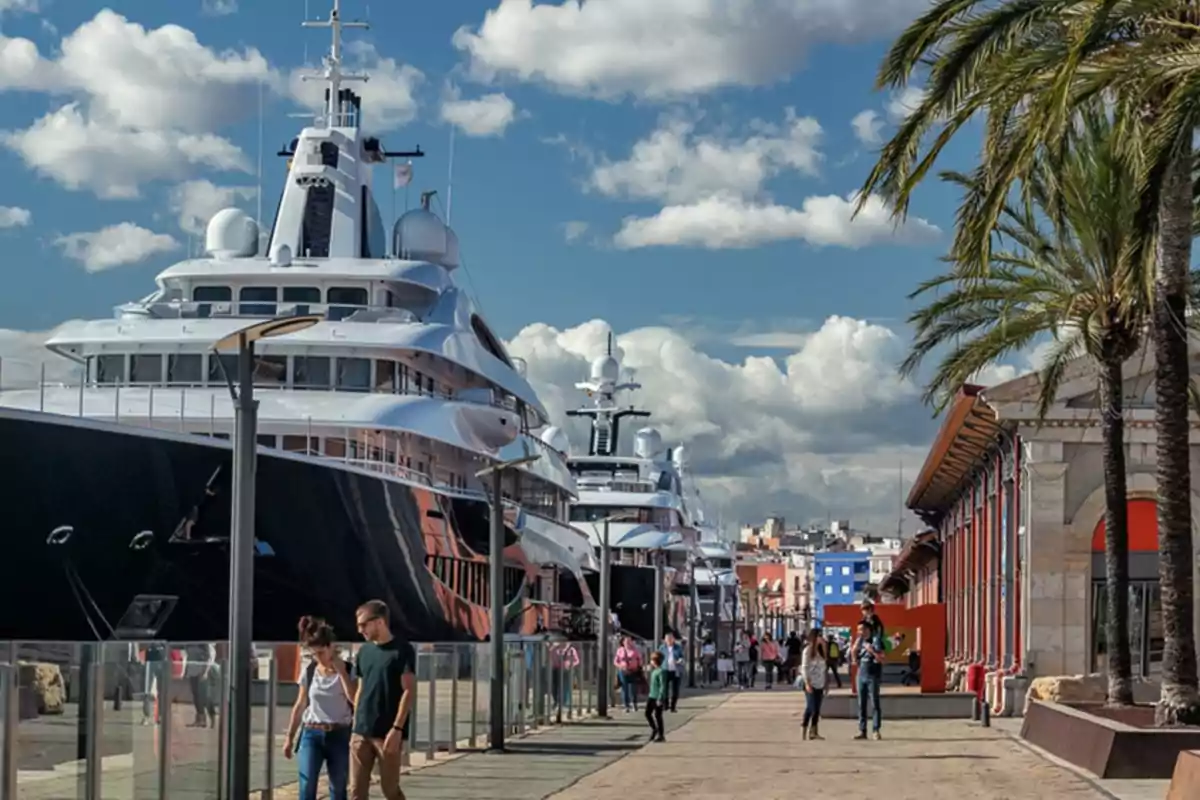
According to statements from the company itself at the time, the goal was to establish the logistics center there for the Emir and his entourage's travels. The discretion of the location, the port's security, and the quality of the services made Tarragona an ideal enclave.
Various sources indicate that one of the ambassadors of this operation was then King Juan Carlos I. He reportedly facilitated the agreement by leveraging his close ties with the Qatari royal family. Although it has never been officially acknowledged, the specialized press considers the purchase to be the result of a "personal management" by the emeritus monarch, who in those years was multiplying his efforts to attract Arab investment to a Spain hit by the crisis.
Juan Carlos I: architect of economic diplomacy with the Gulf
For decades, King Juan Carlos played the role of unofficial economic ambassador of Spain to the Gulf monarchies. His presence in the offices of emirs and sheikhs was key to unlocking major contracts such as the high-speed rail to Mecca or Qatar's investments in Iberdrola.
In 2011, the Qatari emirate committed to inject €3 billion into Spain. Part of that money was used to rescue strategic companies and provide relief to sectors such as energy and real estate. Catalonia, with its tourist appeal and geographic position, was one of the main recipients.
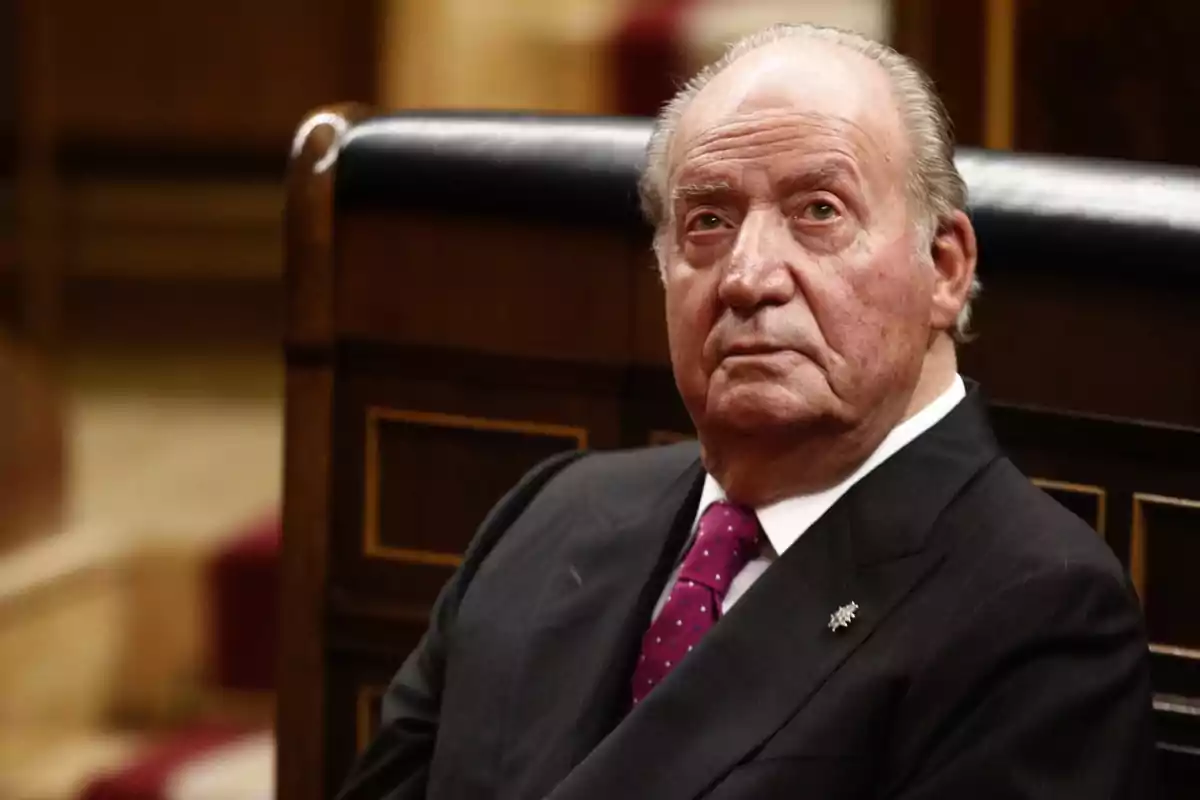
The king's intervention was not limited to matters of state. He also mediated in personal affairs, such as the rental of the Pedralbes mansion of Infanta Cristina to Sheikh Hamed bin Ahmed Al Hamed, cousin of the president of the United Arab Emirates. The contract, at €36,000 per month, was a gesture of friendship toward the Royal House, and the property was barely used.
This model of diplomacy based on personal relationships ultimately exploded when international judicial investigations revealed million-euro payments to the emeritus king from Saudi Arabia. Suspicions of hidden commissions and the scandal of Swiss bank accounts precipitated his departure from the country in 2020. Paradoxically, Juan Carlos went into exile in Abu Dhabi, the same geopolitical environment he had so intensely cultivated.
Sheikhs and businessmen who chose Barcelona
Barcelona has also been the chosen place for residences and businesses of several Gulf personalities. One of the most striking cases is that of Saudi prince Abdullah bin Saad bin Abdulaziz, born in Barcelona in 1968 during his father Prince Saad bin Abdulaziz's stay in the city for medical treatment.
The Saudi prince's family was fascinated by the Mediterranean lifestyle and acquired various properties in the upper part of the city, especially in Pedralbes, where the residences are still preserved today. Abdullah, who spent much of his childhood and youth in the Catalan capital, has kept a constant emotional relationship with the city, to the point of considering it his second home.
It is common to see him on private visits to Barcelona, and he has expressed his admiration for Barça on several occasions. Likewise, Abdullah is one of the most loyal protectors of the emeritus in his exile.
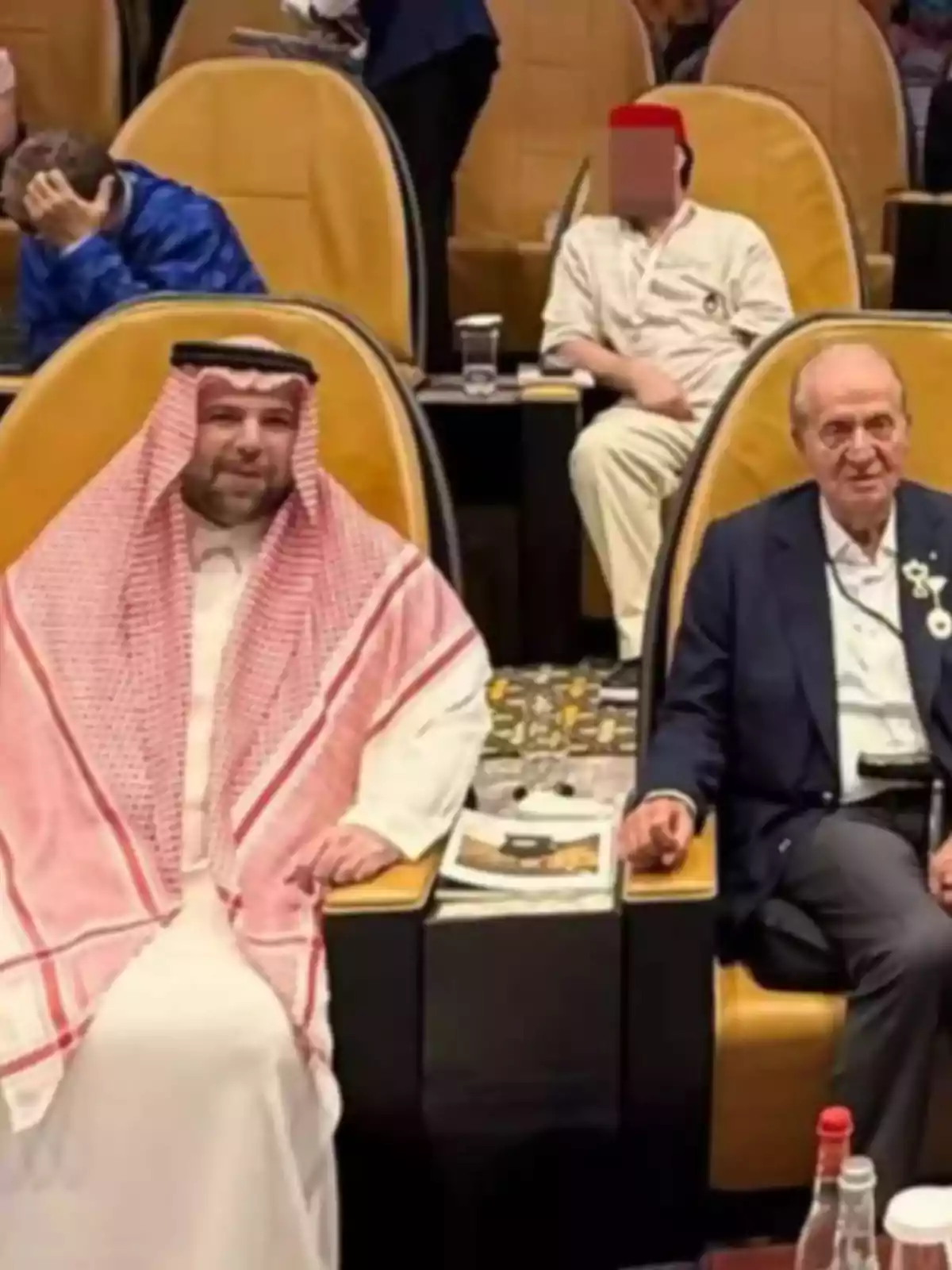
More recently, investors from the Emirates, Qatar, and Saudi Arabia have acquired top-level residences in areas such as Pedralbes, Sarrià, or the Eixample. The discretion with which they operate makes it difficult to quantify the full extent of these investments. But real estate records point to a constant presence of Arab capital in high-value transactions.
Meanwhile, Tarragona has established itself as a strategic port for Gulf monarchies. In addition to the Qatari emir, the King of Bahrain and high-ranking officials from Dubai and Abu Dhabi regularly visit the marina during the summer. This "free zone" of nautical top-level offers privacy and tailor-made services.
Joan Laporta: from criticism of Qatar to a new approach
One of the key figures in the current relationship between Catalonia and the Gulf is Joan Laporta, president of Barça. During his first term at the club, Laporta defended a model based on values and rejected commercial sponsorships with authoritarian regimes. He harshly criticized the agreement his successor Sandro Rosell signed with Qatar Foundation, accusing the emirate of being an "Islamic dictatorship."
However, with his return to the presidency in 2021 and the club's extremely serious financial situation, his stance changed. Laporta has actively sought sponsors in the Middle East and has traveled to Qatar, Saudi Arabia, and the United Arab Emirates.
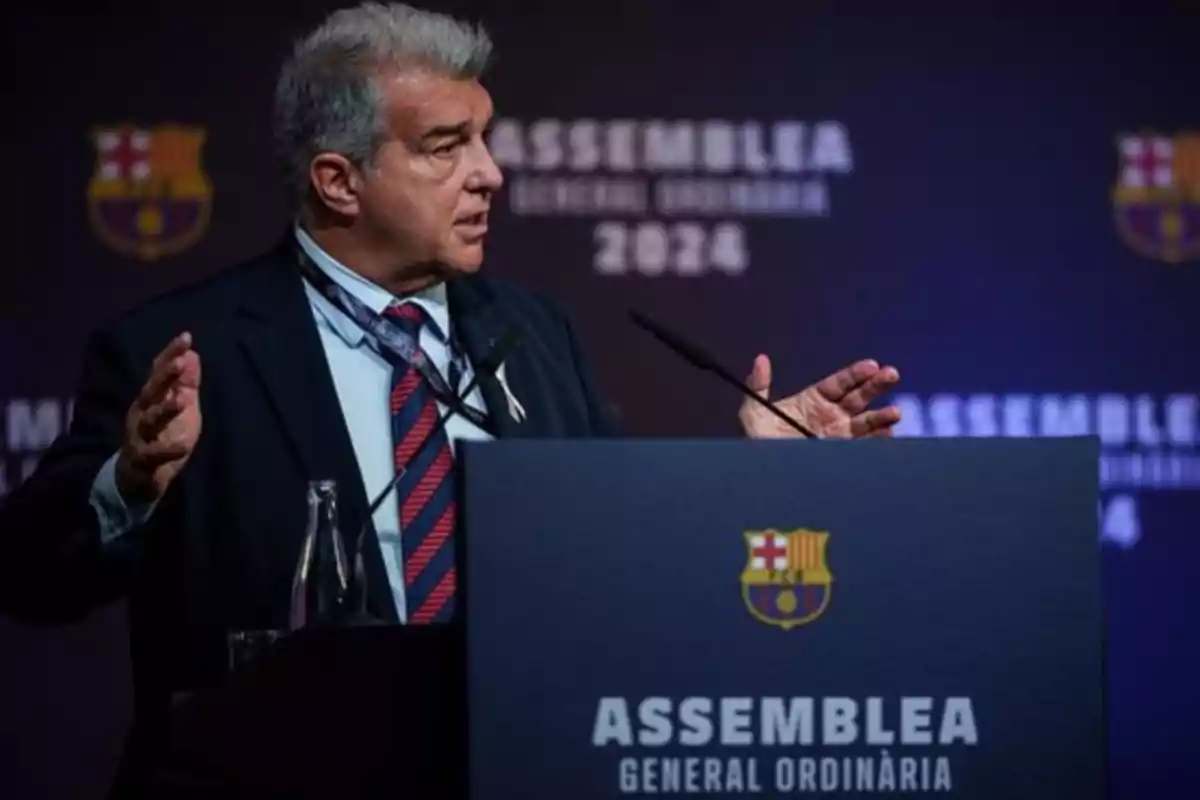
His brother, Xavier Laporta, plays a key role in this strategy. He is the businessman who acts as an intermediary with the sheikhs, although he holds no official position at the club. He is credited with efforts to obtain financial guarantees and explore opportunities with sovereign funds and Gulf companies.
In June 2023, Laporta visited Doha for the first time, invited by Qatari businessman Mohammed Al Attiyah. That trip led to negotiations for new sponsorships that could bring the club tens of millions of euros. Companies such as Baladi Express have begun collaborating with Barça as part of this new stage of economic cooperation with Qatar.
Strategic capital or dangerous dependence?
The massive arrival of Gulf capital in Catalonia brings both benefits and drawbacks. Economically, it has helped rescue infrastructure, boost sectors such as top-level tourism, and offer financing alternatives in critical moments. In the case of Barça, these alliances could guarantee its financial survival.
However, the growing weight of these interests raises questions. The opacity of the operations and the diplomatic asymmetry between the parties generate concern in several sectors. There is also fear that Catalonia could be conditioned by decisions made in Doha, Riyadh, or Abu Dhabi.
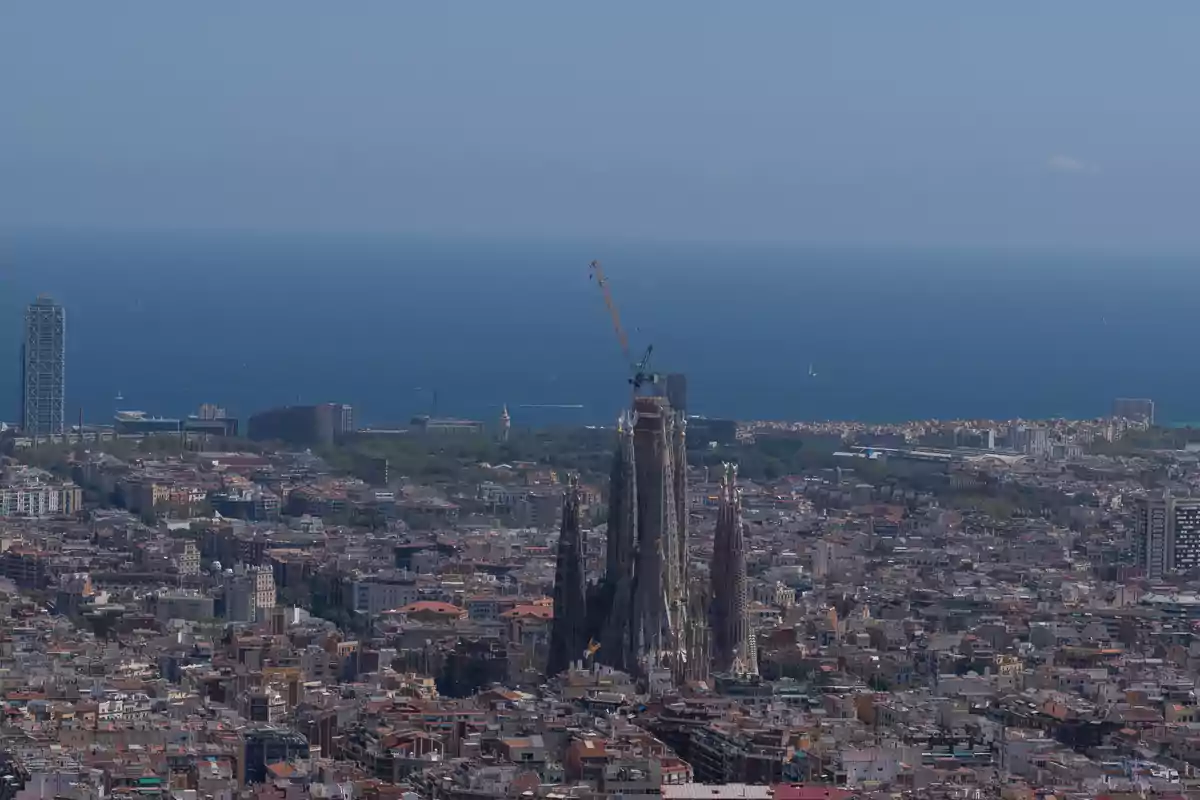
The figure of King Juan Carlos illustrates this tension between useful diplomacy and opaque interests. What began as a mediation effort ended up leading to scandals that have damaged institutional credibility. At Barça, Laporta's shift has been interpreted by some sectors as a renunciation of the club's founding principles.
Socially, the presence of sheikhs and magnates in neighborhoods such as Pedralbes or ports like Tarragona has not caused open conflict. But there is a growing debate about the model of city that is being built. A Barcelona increasingly oriented toward top-level, elite tourism, and the interests of foreign capital.
Despite the controversies, Catalonia has established itself as a privileged bridge between the Persian Gulf and Europe. Its geographic location and symbolic capital (Barça, its lifestyle, its stability) make it an attractive destination for investors. Also for royal families seeking security, privacy, and prestige.
More posts: